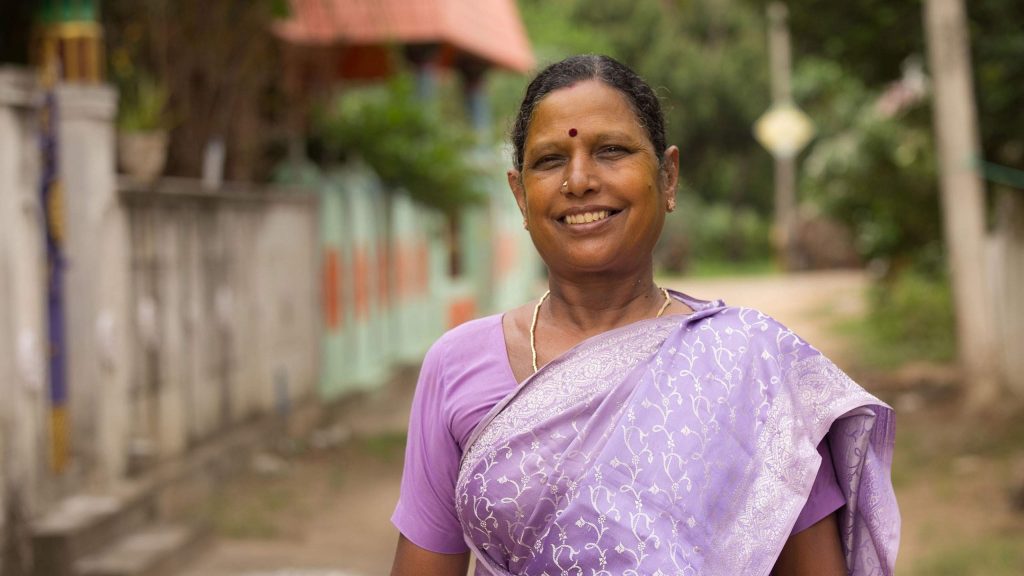India is one of the countries of the world where the law does not favour equal rights for the women. The women encounter various challenges in the bid to break free from the boundaries that have been placed by the law.
Men are paid higher than the women even when they do the same thing and on the same field. This also is a pointer to the high level of illiteracy amongst the women of India.
Despite the gloom that seems to have enveloped the women community of India, they are known to be fighters, go-getters, and path finders.
This brings us to the story of Shantha, the brave and unlearned Indian woman who out of nothing made something.
It all started when she was offer a government job with a pay but what was attached to the job was the opportunity of working in an office and networking with government workers and business people. For an illiterate woman like Shantha who has never experienced anything that has to do with civilization jumped at the offer without taking a glance at her back.
Another benefit that was attached to the job was a free bus ride that takes her to and fro to work each working day.
How foolish! Someone might say but for another, it is an amazing decision to take. I guess this was how she thought and was very hopeful that a bigger opportunity might come around later through the current job.

Truly it happened as she had hoped. Down the lane, as she continued faithfully with her job, still mindful of any opportunity that come by, at a particular period at the office she was informed about women’s “self-help” group that was informed of a micro-finance pattern that allows every woman in the group contributes an equal amount of money, which is then matched by the bank. Furthermore, participants are eligible to take their business proposals to the bank, the bank then approves and invests the funds into the business and parts of their revenues are used to repay the loan over time with interest rates at a subsidized level.
Shantha was over-joyed about this opportunity not just for herself, but also for the women in her community.
This means that Shantha began to think of means to start up the group in her village.
To actualize the plan, Shantha needed at least 20 women to contribute 10 rupees each, to start the group. This sounds good but it was a very difficult task.
The difficulty is in talking to the women to convince them that it was the right thing to do and that it will also change their lives.
Shantha began by walking all over her community often knocking on several doors to talk to the women about the idea. She advised the women on areas they could generate money in order to contribute to the group, she even advised them to sell their food stuff like leftover rice in exchange for money. However, it took Shantha a couple of years to get the women into the system because she was persistent and never gave up.
But that was not all, and it was just a tip of an ice berg to what she encountered through her journey. After a while, she was forced to open a bank account in order for the fund to qualify for the “self-help” loan. However, the bank refused to grant her request because they thought it wasn’t that serious seeing she was only a woman.
She moved to seek advice from her former colleagues at the government office. They advised her to take all the women in her group to the bank and be more persuasive with their demand.
She did as she was advised and it worked. In less than two weeks, after the bank had granted her the account she kick-started her own microfinance group with the first business of buying cows to sell milk.
Fortunately, in 2009, she got information from her former colleagues about a bag manufacturer in Chennai who was seeking for ways to outsource the packaging part of its business. Shantha took the opportunity to create employment for the women in her village.
Through the help of her former colleagues, she was able to liaise with the company and she rented an apartment for the business using the microfinance group model.
Through this business, Shantha has uplifted the lives of many women in her village by providing them with employment in her package bags company.
Currently, over 20 women work as staffs of the packaging unit producing over 5,000 package bags every day.
Through this job, they have been able to feed and take care of their families and also broken free from poverty.
Shantha’s passion diverted to finding women who could benefit from her business, she speaks to every woman she encounters to become members of her group and business.
Shantha has been able to build a concrete house with ‘mod-cons’ unheard of in many rural Indian villages, furnished with a television, a fan, a bed, a stove.
She has also trained her son who works as an engineer.




